Bosch Inaugurates its 2nd Largest R&D Centre in Renningen, Germany

German auto component maker, Bosch, inaugurated its 9th R&D centre in Renningen on Wednesday. 1,200 associates will focus on materials and methods, and technologies, as well as on the development of new systems, components, and manufacturing processes. At the moment, these activities and the relevant units are spread at locations in the Greater Stuttgart area but now all will be under one roof. The global component supplier has invested a total of 310 million Euro in this research and advance engineering center. This is also the company's 2nd largest R&D centre. The one located in Bangalore, India remains the largest with almost 2,200 associates working there.
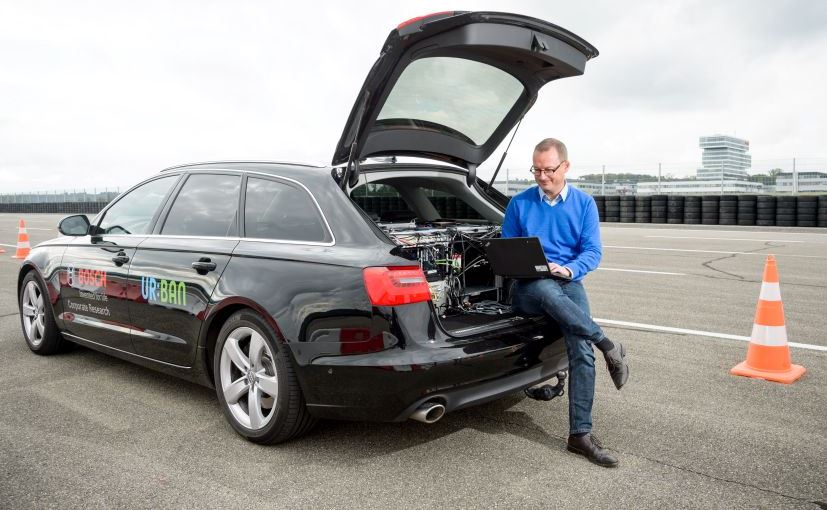
The new campus will provide base for the development of new products and also gathering ideas for innovative manufacturing methods. Their work will focus on areas such as software engineering, sensor technology, automation, driver assistance systems, and battery technology, as well as on improved automotive powertrain systems. In 2014, Bosch spent 5 billion Euro on research, which is 10% of its global sales, and believes the number is going to grow in the future. Bosch has also started venturing, investing and encouraging new start-ups, and the new center will also facilitate them.
For instance, the company is supporting a start up that has made a prototype which will help farmers get rid of weeds without using herbicides. 'BoniRob' is an agricultural robot, which is approximately the size of a compact car, uses video and lidar based positioning as well as satellite navigation to find its way around the field and pushes all the weeds in the farm back deep into the soil and helps to minimize the environmental impact of crop farming. While this is just the prototype, Bosch says the production version is feasible and they are very close to developing one.
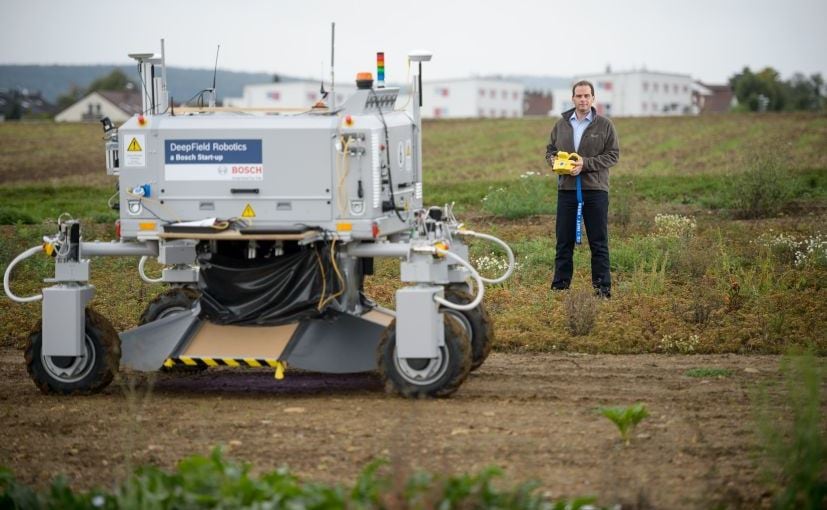
There will be a lot of R&D work on battery technology for electric vehicles too. A 5 year target has been set to develop solid state cells for lithium batteries that will give double energy density, and will also reduce the cost by over 20% by 2020. Bosch claims a comparable electric car that has a driving range of 150Km today would be able to travel more than 300Km without recharging and at a lower cost.
Talking to the media, Dr. Volkmar Denner, Chairman of the board of management, Robert Bosch GmbH, said, "Bosch is using its knowledge and considerable financial resources to achieve a breakthrough for electro-mobility. The acquisition of the U.S Seeo Inc will help make this possible soon."
After Google, if any company is known for working on automated driving cars, it is Bosch. The company believes automated driving is an extremely reliable technology and more than 10,000Km of test drives have been conducted on public roads.
"Thanks to our highway pilots from 2020 we could see highly automated cars driving themselves on freeways," says Dr. Dirk Hoheisel, member of the board of management, Robert Bosch GmbH. He added this not only improves road safety, but also places great demand on technical reliability. With that being said, it is equally important for governments to establish the necessary legal framework for automated driving. "Legislation must keep pace with what is technically possible," Hoheisel added.
Latest News
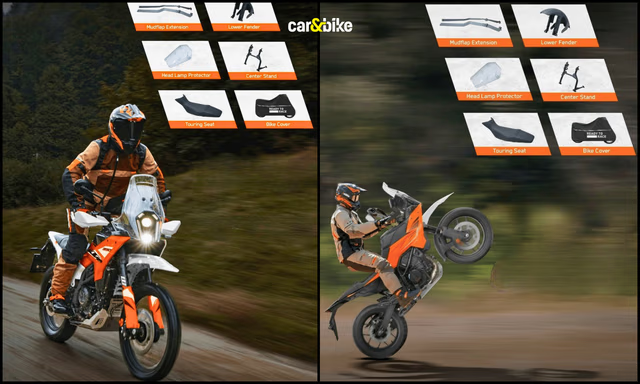 car&bike Team | Feb 19, 2026KTM 390, 250 Adventure Offered With Free Accessories And 10-Year Extended WarrantyThis limited-run scheme is offered until February 28 on both motorcycles.2 mins read
car&bike Team | Feb 19, 2026KTM 390, 250 Adventure Offered With Free Accessories And 10-Year Extended WarrantyThis limited-run scheme is offered until February 28 on both motorcycles.2 mins read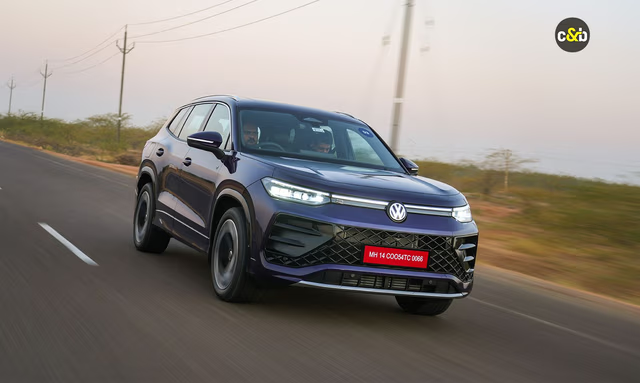 Jaiveer Mehra | Feb 19, 2026Volkswagen Tayron Launched In India at Rs 46.99 LakhThe Tayron is essentially the successor to the now-discontinued Tiguan Allspace and features three rows of seating.1 min read
Jaiveer Mehra | Feb 19, 2026Volkswagen Tayron Launched In India at Rs 46.99 LakhThe Tayron is essentially the successor to the now-discontinued Tiguan Allspace and features three rows of seating.1 min read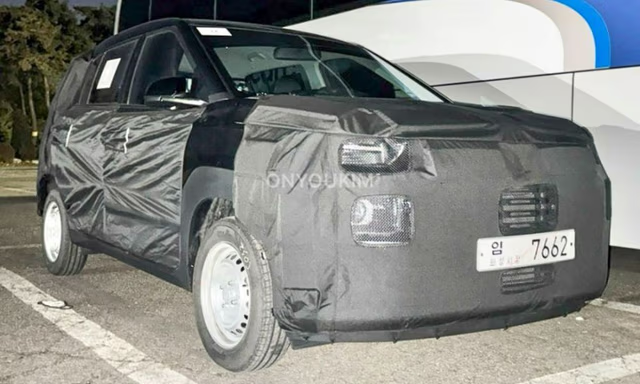 car&bike Team | Feb 19, 2026Hyundai Exter Facelift Spied In South KoreaThe Exter facelift was spotted testing in India earlier this year.2 mins read
car&bike Team | Feb 19, 2026Hyundai Exter Facelift Spied In South KoreaThe Exter facelift was spotted testing in India earlier this year.2 mins read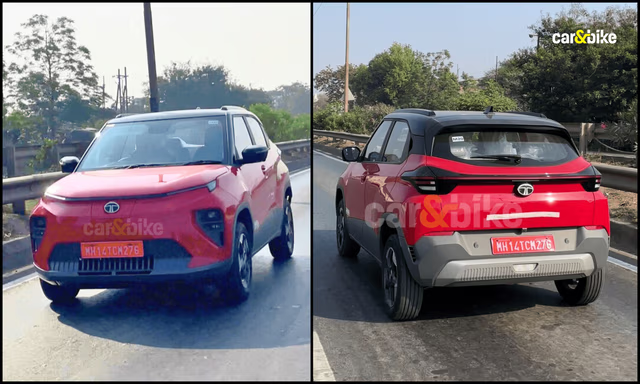 Bilal Firfiray | Feb 19, 2026Tata Punch EV Facelift To Be Launched Tomorrow: What To Expect?Launched in 2024, the Punch EV is due for a major update. And more than cosmetic changes, it will have some skin-deep updates too.1 min read
Bilal Firfiray | Feb 19, 2026Tata Punch EV Facelift To Be Launched Tomorrow: What To Expect?Launched in 2024, the Punch EV is due for a major update. And more than cosmetic changes, it will have some skin-deep updates too.1 min read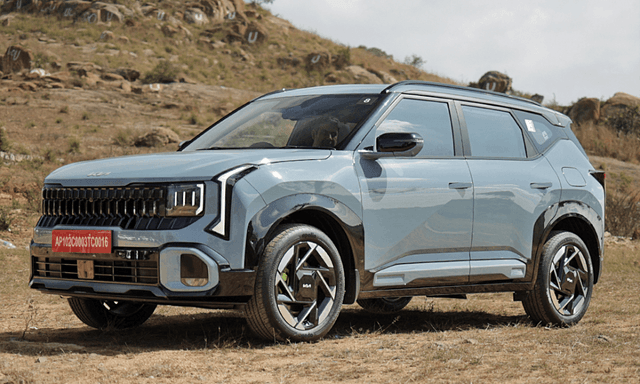 car&bike Team | Feb 18, 2026Kia Seltos Achieves 6 Lakh Unit Sales MilestoneThe Seltos was Kia’s first product in India, having been launched in August 2019.2 mins read
car&bike Team | Feb 18, 2026Kia Seltos Achieves 6 Lakh Unit Sales MilestoneThe Seltos was Kia’s first product in India, having been launched in August 2019.2 mins read Bilal Firfiray | Feb 18, 2026Maruti Suzuki e-Vitara Full Price List Revealed, Starts At Rs 15.99 LakhYesterday, the BaaS (battery as a service) pricing was out. Now Maruti has given the non-BaaS pricing of the all-new e-Vitara2 mins read
Bilal Firfiray | Feb 18, 2026Maruti Suzuki e-Vitara Full Price List Revealed, Starts At Rs 15.99 LakhYesterday, the BaaS (battery as a service) pricing was out. Now Maruti has given the non-BaaS pricing of the all-new e-Vitara2 mins read
 Jaiveer Mehra | Feb 18, 2026New BMW X3 30 Vs Mercedes-Benz GLC 300: Midsize Luxury SUV FaceoffWith the new X3 30, BMW has a direct competitor to the petrol GLC 300, but which is the luxury SUV for you?1 min read
Jaiveer Mehra | Feb 18, 2026New BMW X3 30 Vs Mercedes-Benz GLC 300: Midsize Luxury SUV FaceoffWith the new X3 30, BMW has a direct competitor to the petrol GLC 300, but which is the luxury SUV for you?1 min read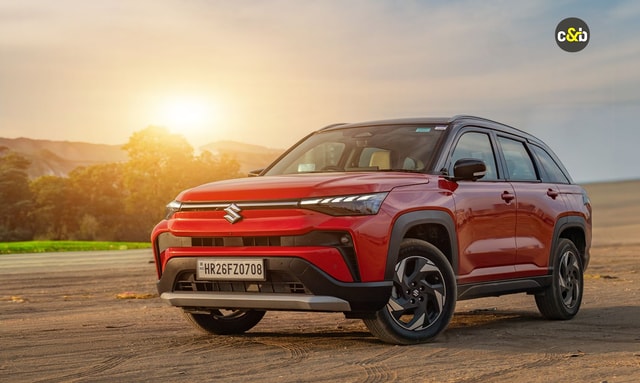 Jafar Rizvi | Feb 15, 2026Maruti Suzuki Victoris: Long-Term Review - Report 1The Victoris is Maruti’s latest offering for the Indian market, and after spending some time with it, here are a few early impressions.1 min read
Jafar Rizvi | Feb 15, 2026Maruti Suzuki Victoris: Long-Term Review - Report 1The Victoris is Maruti’s latest offering for the Indian market, and after spending some time with it, here are a few early impressions.1 min read Bilal Firfiray | Feb 12, 2026BMW X3 30 xDrive M Sport Review: The Driver’s SUV ReturnsRange-toppingX3 30 xDrive M Sport brings back the fun with 255bhp and genuine enthusiast appeal. Does this performance-focused SUV stand out?5 mins read
Bilal Firfiray | Feb 12, 2026BMW X3 30 xDrive M Sport Review: The Driver’s SUV ReturnsRange-toppingX3 30 xDrive M Sport brings back the fun with 255bhp and genuine enthusiast appeal. Does this performance-focused SUV stand out?5 mins read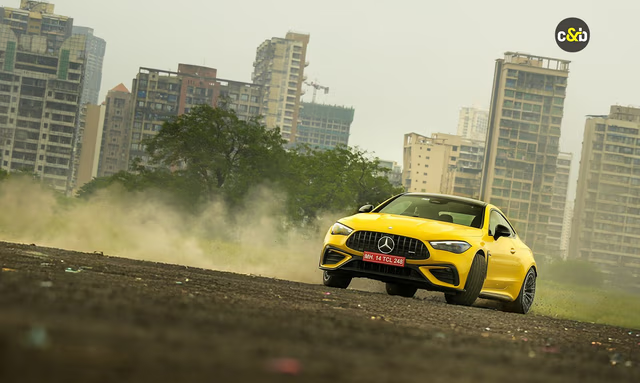 Bilal Firfiray | Feb 11, 2026Mercedes-AMG CLE 53 Coupe Review: The Goldilocks AMG?The Mercedes-AMG CLE 53 Coupe is a concoction of hooliganistic performance and everyday usability. Here’s why this Rs 1.5 crore two-door AMG might be the perfect modern sports coupe for India.6 mins read
Bilal Firfiray | Feb 11, 2026Mercedes-AMG CLE 53 Coupe Review: The Goldilocks AMG?The Mercedes-AMG CLE 53 Coupe is a concoction of hooliganistic performance and everyday usability. Here’s why this Rs 1.5 crore two-door AMG might be the perfect modern sports coupe for India.6 mins read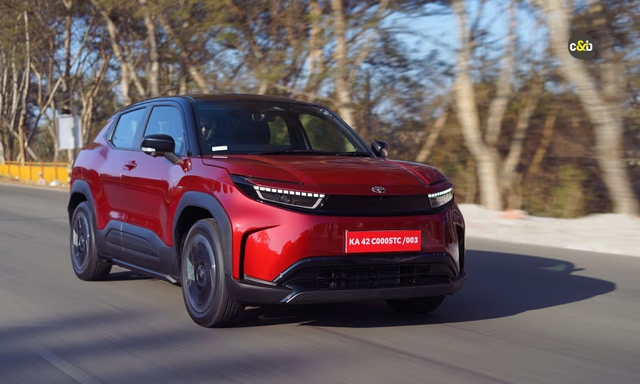 Girish Karkera | Feb 11, 2026Toyota Ebella EV Review: Compact And Fun-To-Drive With The Promise Of Stress-Free AftersalesNo hiding the fact that it is a clone of the Maruti Suzuki eVitara, but the first all-electric Toyota in India is reasonably well-rounded8 mins read
Girish Karkera | Feb 11, 2026Toyota Ebella EV Review: Compact And Fun-To-Drive With The Promise Of Stress-Free AftersalesNo hiding the fact that it is a clone of the Maruti Suzuki eVitara, but the first all-electric Toyota in India is reasonably well-rounded8 mins read





















































































































